As predicted, a record-breaking number of women ran in the November mid-term elections. Out of the 270 women running, 123 have been elected into office.
That’s 102 women in the house, 12 women in the Senate and 9 in the gubernatorial race.
The diversity amongst this election includes other firsts, as 45 women of color won their respected races. Two Muslim women became the first to ever be elected to Congress. And, two Native American women became the first to ever be elected to Congress.
Alexandria Ocasio-Cortez (NY), who we wrote about in August, became the youngest woman elected to Congress. And, Ayanna Pressley (MA) will become the first black woman to represent her state.
Some of the women elected governors below were also firsts in their state.
Kate Brown

State: Oregon
Party: Democratic
Before running for governor and winning in 2014, Brown served as Oregon’s Secretary of State as well as in the Oregon State Senate, and the Oregon House of Representatives.
She studied at the University of Colorado-Boulder and Lewis and Clark’s Northwestern School of Law in Oregon. There, Brown received her degree in Law and, something to take note of, Certificate in Environmental Law.
Brown is the first openly bi-sexual governer statewide.
It should go without saying, but the Oregon governor is an avid outdoor enthusiast. She is reported to enjoy regularly going horseback riding, hiking, and kayaking with her family.
As for her policies and Action Plan for Oregon, Brown seeks to “Pass the Oregon Environmental Protection Act” despite the standards changing due to the Trump administration. Brown hopes to keep this act untouched and remain a positive example to set for other states.
She also wants to “ensure access to health insurance for 99 percent of adults and 100 percent of kids” and completely eradicate homelessness amongst children. One of her aims to prevent this is opening permanent homeless housing and increasing access to mental health and substance abuse for Oregonian’s.
Brown states to continue to help those struggling with an opioid, and other, drug addictions by “Reducing Substance Use Disorder (SUD) for 75,000 Oregonians in five years.”
In a state like Oregon, that could potentially become the center of the next disastrous earthquake, there need to be preparations set in place. By 2023, Brown wants to have set up an early warning system.
For once the earthquake is over, she will “work with local governments, community group, and the American Red Cross to ensure that 250,000 vulnerable homes have 2-week ready supplies in the next three years.”
Michelle Lujan Grisham
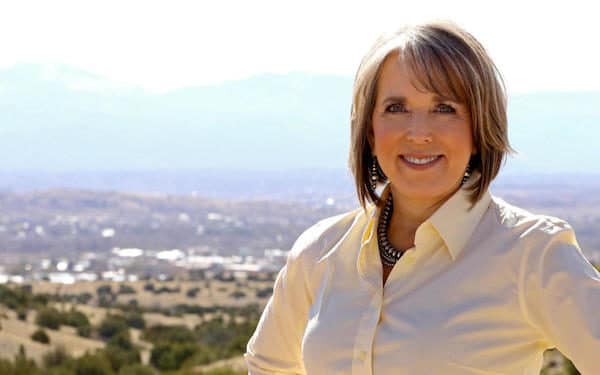
State: New Mexico
Party: Democratic
On almost all her “about” pages, Grisham is described as a proud 12th-generation New Mexican. She is the first Democratic Latina governor to be elected in the United States.
Grisham grew up in Santa Fe, to a family of ardent pride and care for their community and those people that were less heard. Her father, a practicing dentist, is said to have treated some clients for free if they were unable to afford the bills.
And, Grisham’s Grandfather, who served on the New Mexico Supreme Court, was the first Hispanic chief justice member.
Similarly, the governor-elect aims to help those less represented and able to, like veterans, elderly, women, and the working class.
She has previously worked on the Budget Committee and Agriculture Committee in the U.S. House of Representatives, where she has fought and “passed legislation to help local tribes, public schools and pay for training for law enforcement.”
Her future plans for New Mexico, one of the country’s poorest states, include raising the minimum wage, reported Vox, from $7.50 to $12 an hour.
Furthermore, Grisham aims to approach immigration in a more humane way, namely the much reported on caravan, in the state that is 48.8% Hispanic.
“I worry about the women and children in that caravan,” she said at a recent news conference.
Adding…
” I have not been confident about the president’s or Homeland Security’s information, I haven’t found it credible – in many details, in many ways. If I can’t get information in January that shifts my thinking, particularly with assignment of troops on the border, I would likely reconsider the National Guard being on the border.”
Kay Ivey
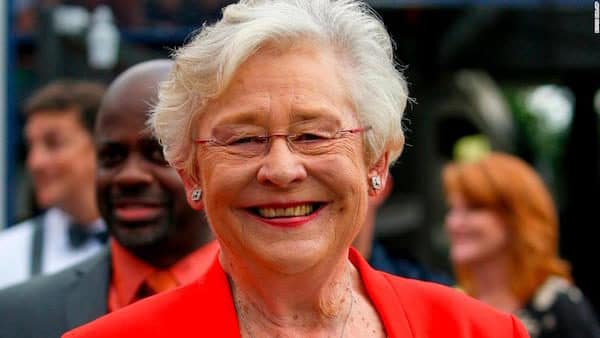
State: Alabama
Party: Republican
Ivey grew up on her parent’s farm in rural Alabama, where her bio states, “Her parents instilled values of faith, family, and community.”
She has worked as a teacher and bank officer. As Reading Clerk of the Alabama House of Representatives, Assistant Director of the Alabama Development Office, State Treasurer and Lieutenant Governor.
What’s more is she’s very much a respected figure in her home state. Being the recipient of several prestigious awards such as being named one of “Newmax’s 50 Most Influential Female Republicans in the country.”
At 74, Ivey has a history in service and politics that, despite her views, should be viewed as a progressive step for women. Especially considering the State. However, progressive she is not.
“Every child deserves a strong start to their educational experience. Governor Ivey believes developmentally-appropriate policies will strengthen and support education from pre-K through the third grade.” Reads Ivey’s Education Initiative.
Yet a previous quote contradicts this by targetting immigrant children. “Vast sums of precious tax dollars are being siphoned off from your child’s education to pay for the teaching of children whose parents are living here illegally.”
So, not “every child deserves an education.”
As Ivey is pro-gun, as seen in this Oscar-worthy ad, the governor signed an executive memo that passed a bill that will allow trained school administrators to be armed.
She uses gun control to jump assuaged into a more positive light. For example, earlier this year she announced that there would be a new gun factory opening in the state, bringing 366 new jobs with it.
As a woman, it’s an onerous thing to inform others of something that should be seen as a positive as anything but. What Ivey has achieved in her career is great, but we can’t afford to overlook that she is anti-gay, pro-life, voted for Roy Moore and supported Bret Kavanaugh.
Laura Kelly
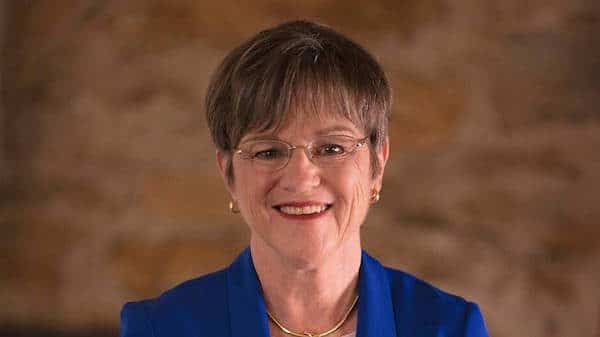
State: Kansas
Party: Democratic
The midterm “blue wave” was talked about often. Whether it happened as much as it was anticipated by Democrats is up for debate. Still, the outcome for the recent midterms was outstanding, bringing in a record number of women and overturning the House.
States that were predominantly republican were flipped- and Kansas was one of them, winning about 48% of the vote.
Much like the previous governer’s bio, Kelly’s also mentions her family’s impact on her views and policies. “Kelly grew up in a career military family where she learned the importance of service, integrity, and accountability.”
The governor-elect was the leader of the Kansas Recreation and Park Association. She was elected to the Senate in 2004.
During her campaign, Kelly, as shows on her website, spoke about issues concerning the state and its residents.
In regards to the economy, Kelly purports to, “invest in higher education, including technical and trade schools, and job training programs so that all graduates in Kansas have the skills needed to enter the workforce. She will focus on promoting partnerships to ensure businesses can find the trained workers they need in their industry.”
She plans to invest in infrastructure, too. That will directly impact the economy with better broadband, roads, and highways.
Kelly directly acknowledges Kansas’s lack of interest among the young and progressive. Blaming the Brownback-Colyer to have “tarnished the image of Kansas”, and it’s increasing migration.
She wants to create a thriving state for business, with quality education and healthcare. Kelly supports expanding Medicaid and has estimated that she will do so in her first year.
She is also an advocate for women’s reproductive rights and has been endorsed by Planned Parenthood and Emily’s list.
She says exactly what women want to hear, which feels that bit more credible coming from one. “Laura also understands decisions that impact women’s lives – whether it’s healthcare, schools, childcare or jobs – shouldn’t just be made by a room full of men.”
In her modest response after winning the majority of the vote, Kelly wouldn’t take credit for a victory Democratic vote. Instead, she said, “What happened in Kansas was a wave of common sense, a wave of bipartisanship.”
Janet Mills
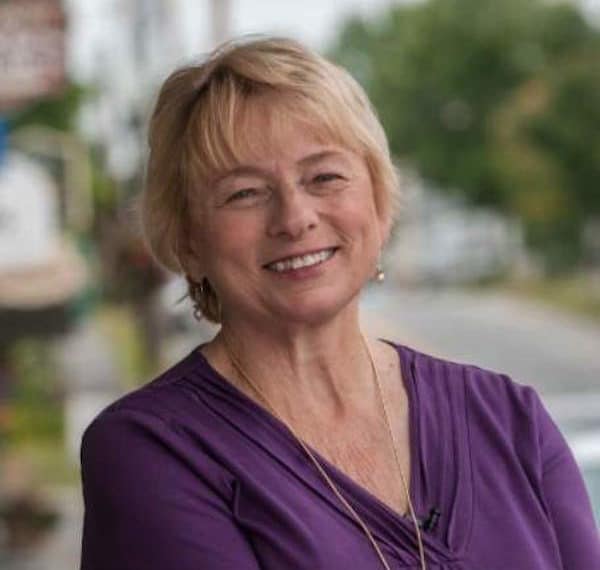
State: Maine
Party: Democratic
She’s the first woman elected governor of the state!
Mill’s backstory on how she decided to run for governor, is somewhat similar to the previous ones on this list. But, after a tragic loss, she sought to prevent others from enduring what she experienced.
After graduating from the University of Maine School of Law, she began her career as an Assistant Attorney General in the state.
After years of working on homicide and other serious cases, she was elected as “District Attorney for Androscoggin, Franklin and Oxford Counties.” She was the first woman to be elected as DA in New England.
Working in this environment, Mills was subject to a lot of cases involving abused women. She was unsatisfied with how the justice system handled these cases. It was this that pushed her to co-fund Maine Women’s Lobby, an advocacy group for women of domestic violence.
In addition to wanting to improve resources for abused women, which has shaped much of her career and become the driving force of it, she recently lost her husband.
On her policies page, she shares her personal story. One that indicates how she knows exactly what many families are going through.
“Five years ago, I got a terrifying call: my husband, Stan, had suffered a debilitating stroke. It changed our lives. For the next year before he passed away, I fought for him while he was in-and-out of hospitals and health care facilities, all while working full-time myself — it was tough on our family. But, I knew, too, that what we were going through was no different than what thousands of other working Maine families were going through: facing a confusing and complex health care system, with increasing deductibles and premiums, and — for many — unaffordable co-pays and high prescription drug costs.”
Her detailed plan on how she will make healthcare accessible to all lists: Expanding Medicaid and lowering prescription costs. Likewise, supporting “well-regulated health association care plans” and rebuilding the public health infrastructure.
Other policies of Mill’s include supporting the state’s creative economy. Moreover working with indigenous people and fighting for equality and LGBTQ causes.
Mill wants to build new affordable homes for Maine.
Thus, increasing jobs, “good-paying jobs that will help ensure more Maine workers and their families have the money in their pockets they need to afford housing – a win-win for Maine people.”
Kristi Noem
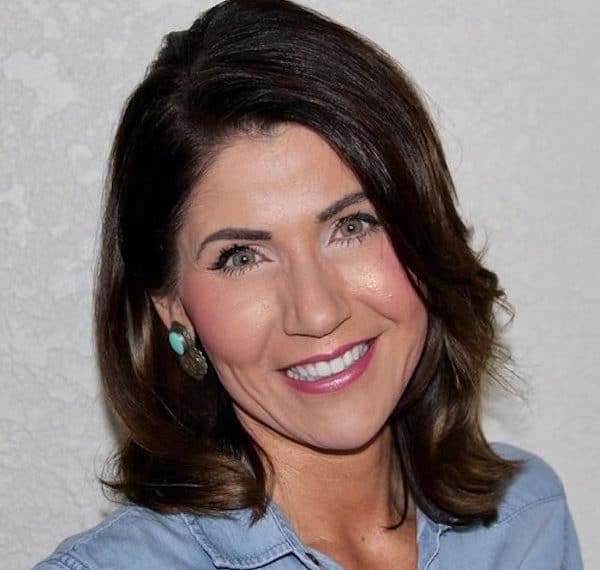
State: South Dakota
Party: Republican
Noem was raised on a farm in South Dakota. She and her siblings all pitched in with the work on their family farm. They helped plant and harvest crops, as well as take care of the animals.
When Noem was away at college, her father passed away. It “left a huge absence, so Kristi stepped up and helped stabilize the operation and provided leadership when it was needed most.” She would help run the family business.
Due to her upbringing and loyalty to keep the farm running, most of Noem’s life and career has been centered around agriculture.
In 1997 she won the award for Outstanding Young Farmer award. Noem has also served on South Dakota State Farm Agency State Committee, the Commission for Agriculture in the 21st Century, the South Dakota Soybean Association and others, her website says.
It wasn’t until 2006 that Noemi began working in politics, first as a District Representative then as Assistant Majority Leader.
Then, “Kristi was first elected to serve as South Dakota’s lone Member of the U.S. House of Representatives in 2010.” All while balancing her farm and studying at university.
She supports H.R.6100, a bill to Protect Family Farms and Business. As a Republican, she even supports Medicaid. “My mother and grandmother are currently on Medicare, so I understand just how important it is to our family that this program remains viable.”
In an effort to protect and aid South Dakota’s Native American population (9%), she says, “I am committed to protecting tribal sovereignty, offering support for safer schools and an improved health care system, and promoting economic development in Indian Country.”
Her efforts come with previously backed policies, such as the tribal sovereignty legislation and her co-sponsoring of the Tribal General Welfare Exclusion Act.
Noem is in favor of a lot of sustainable energy resources, “I support an all-of-the-above approach that includes natural gas, wind, ethanol, clean coal, renewable energies, and domestic oil.” With a heavy focus on wind energy in the state, something she co-sponsored by extending the Production Tax Credit.
As optimistic as all of this appears to be, Noem is a Republican and has views that reflect her party. Though she is keen to encourage wind energy, Noem is in agreement of the building of Keyline XL pipeline.
This would directly impact many Native American lives and pollute the area, increasing the risk of an oil spill. She has voted for it “repeatedly”.
Oh, and she’s very pro-life.
Gina Raimondo
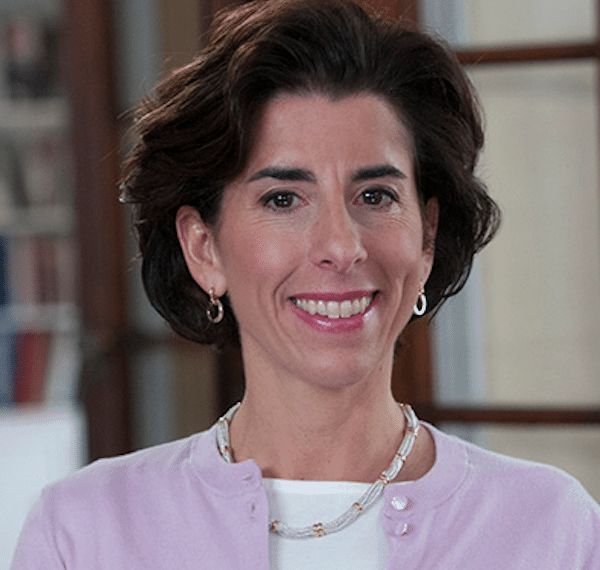
State: Rhode Island
Party: Democratic
Raimondo, like Mills, is the first woman elected to be governor of her state.
Her Grandfather, an Italian immigrant, came to America at just 14 years old and learned how to speak English in the public library. Raimondo’s father would be the first of their family to attend university.
After, he worked for a watch company until production moved to China.
The mix of her grandfather’s American dream with her father’s lay-off due to cheaper labor outside of the U.S “shaped her core belief that we need to make sure all Rhode Islanders who want to work hard can earn a good living.” Raimondo not only wanted to bring business back, but she also wanted to “rebuild the middle class”.
And she did.
“Under Gina’s leadership, Rhode Island has gone from the 36th worst state economy into the top 10 economies in America.”
She has improved infrastructure and small businesses. Cut social security tax for elders and, Rhode Island now offers free higher education at community colleges.
Raimondo is proudly for gun-control measures and is happy to say that she is not affiliated with the NRA. She signed a bill that prohibits that acused of domestic abuse own a firearm. Plus, another bill that is “ordering police to take all available legal steps” to take guns away from unfit owners.
To take preventative steps toward a less polluted state, Raimondo has set a nearing goal to reach.
Upon hearing that Rhode Island is the only state with an off-shore wind farm, it’s easy to put the two together as being a coincidence. Thankfully, Raimondo seems committed to easing into an almost certain apocalypse.
“When President Trump withdrew our nation from the Paris Climate Agreement, Gina entered Rhode Island into the United States Climate Alliance and committed to uphold greenhouse gas reduction goals despite D.C.’s action.”
Kim Reynolds

State: Iowa
Party: Republican
Another first for women, this time in the state of Iowa.
Reynolds grew up in a working-class family and never forgot that. She highlights this, mentioning her time waitressing and checking. She also raised a young family while studying at university.
All of this, Reynolds says, “is why she understands the challenges families face because she’s faced them herself.”
Not only that, but the governor-elect has a shining CV. She’s served as County Treasurer, State Senator, and Lieutenant Governor. Reynolds has been a leader in foreign trade relationships between countries from China to Germany.
Her initiatives range from improving mental health to lowering tax.
Training every doctor with the vital skills to diagnose and treat mental health conditions is already in Reynolds plan, and budget. “I have included money in my budget for this innovative program. It will be the first-of-its-kind.”
Repealing Obama care and furthering the development of managed, individualized care in Iowa is another thing plans to do.
Reynolds wants to end DACA, agreeing with Trump that Congress “needs to act.” Yet, she differs with the President when it comes to the separation of families at the border, echoing a similar reaction from other Republicans that it was unconstitutional and “not who we are as a nation.”
Women being elected governers is great. Yet, as previously mentioned we can’t ignore some stances they take on important issues- like equality.
Politics isn’t just about taxes, trade, and other less emotionally driven aspects. It’s also about justice, fairness and democracy.
Which, as much as Reynold’s views on mental health are pulling society forward, her disagreeing with gay marriage is not. Reynolds has said to believe that a marriage is between a man and a woman.
Gretchen Whitmer
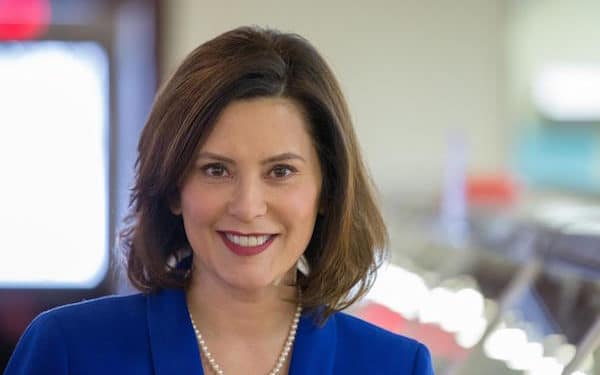
State: Michigan
Party: Democratic
Whitmer grew up in the Grand Rapids with her siblings and divorced mother. To build around the image as a working-class Michinager, Whitmer, like other politicians, recalls her odd jobs. Ar Target and at Royal Fork Buffet.
On a more serious career note, Whitmer studied at Michigan State University and received her degree in Law.
She has served as a State Representative and a State Senator. Whereupon Whitmer “took care of her mother at the end of her life while giving birth to and caring for her first daughter” all during her first term at the latter.
Whitmer has also taught at both the University of Michigan and her alma mater.
The Flint Water Crisis is something that uncovered a lot of the undemocratic ways in which America chooses to handle a crisis. Depending on the location, demographics, and coverage. By the way, it still hasn’t been fully dealt with.
As a resident, Whitmer must have seen the devastation and utter disregard those in charge felt for the multiple complaints by the people of Flint. In her Clean Water Initiative, she wants to speed up the replacement and mending of the crisis “so every parent can turn on their tap, bathe their kids, and give them a glass at the dinner table.”
She has a sense of humor, too. Fix The Damn Roads is actually the title of one of Whitmer’s Initiatives.
Urban poverty has left many neighborhood buildings derelict and as stark reminders of an economic downfall. Whitmer plans on: “Closing the Economic Inequity Gap”, building “Safe Communities and Affordable Housing and Ending Racial Disparities.”


